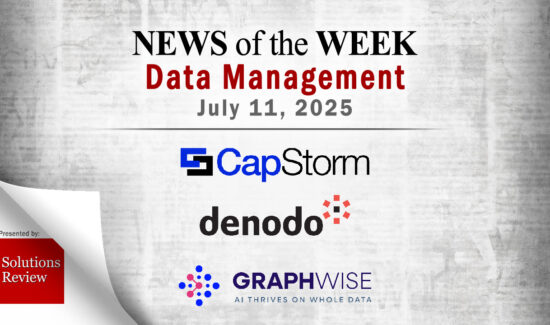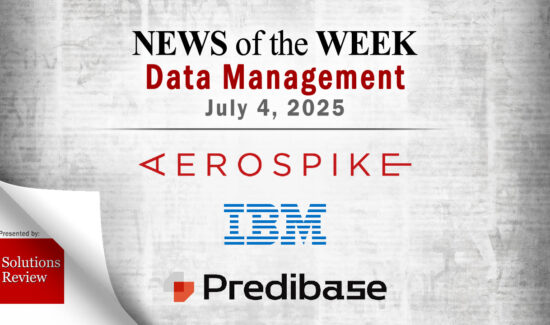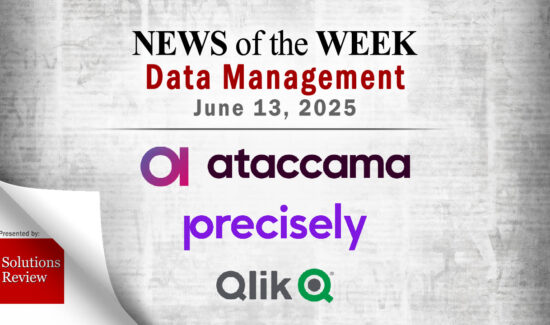Examining Top Data Management Firms in the 2019 Forbes Cloud 100


The 2019 Forbes Cloud 100 recognizes the best private cloud companies in the world. Ranging from small startups to venture-backed cloud behemoths, the fourth annual listing makes mention of popular consumer-facing companies like Stripe, Mailchimp, Toast and others. As part of the selection process for the list, Forbes’ data partner, Bessemer Venture Partners, received hundreds of submissions from the top cloud startups. A panel of judges selected the providers based on four factors: estimated valuation (30%), operating metrics (20%), people & culture (15%) and market leadership (35%), which the judge panel then weighed to select, score and rank the winners.
The 2019 listing isn’t just made up of consumer technology brands, however. The popular award directory also includes a growing number of enterprise technology and software providers. The editors at Solutions Review have perused the 2019 Forbes 100 and identified these top data management firms as warranting extra attention. Companies are listed in the order Forbes has them ranked.
2. Snowflake
Snowflake offers a cloud data warehouse that loads and optimizes data from virtually any source, both structured and unstructured, including JSON, Avro, and XML. Snowflake features broad support for standard SQL, and users can do updates, deletes, analytical functions, transactions, and complex joins as a result. The tool requires zero management and no infrastructure. The columnar database engine uses advanced optimizations to crunch data, process reports, and run analytics. Snowflake is one of the 8 major players in analytics-focused data management for 2019.
9. Rubrik
Rubrik’s cloud data management platform enables backup, recovery, archival, search, analytics, compliance and copy data management in a single secure fabric across data centers and clouds. The product features a vendor-agnostic design and supports industry-leading applications, operating systems, databases, hypervisors, clouds, and SaaS applications. Rubrik recently unveiled an update to its Andes solution, adding new capabilities for data classification, automated disaster recovery orchestration, and continuous data protection across Rubrik Cloud Data Management and Rubrik Polaris.
48. DataStax
DataStax offers a distributed hybrid cloud database built on Apache Cassandra. The company’s flagship product is DataStax Enterprise, a solution that makes it easy for enterprise to exploit hybrid and multi-cloud environments via a data layer that eliminates complexity associated with deploying applications across multiple on-prem data centers or multiple public clouds. Its enterprise data layer eliminates data silos and cloud vendor lock-in and powers mission-critical applications. The company recently announced the release of its new cloud data platform, Constellation, at its annual user conference. Solutions Review named DataStax one of 4 Data Management for Analytics Vendors to Watch in 2019 as well.
54. Collibra
Collibra‘s Data Dictionary documents an organization’s technical metadata and how it is used. It describes the structure of a piece of data, its relationship to other data, and its origin, format, and use. The solution serves as a searchable repository for users who need to understand how and where data is stored and how it can be used. Users can also document roles and responsibilities and utilize workflows to define and map data. The company secured a new round of funding worth $100 million earlier this year. The Series E funding round, which was led by Alphabet’s growth equity investment arm CapitalG, bring’s the company’s total funding to more than $230 million.
83. Cohesity
Cohesity consolidates secondary storage silos onto a hyperconverged, web-scale data platform that supports both public and private clouds. The vendor’s storage solution enables users to streamline their backup and data protection, and then converge file and object services. Cohesity provides a single platform, a single GUI, and an app ecosystem, as well as machine learning capabilities. The provider offers two hyperconverged platforms; C3000 and C4000, as well as its distributed file system solution, called Cohesity SpanFS.





















